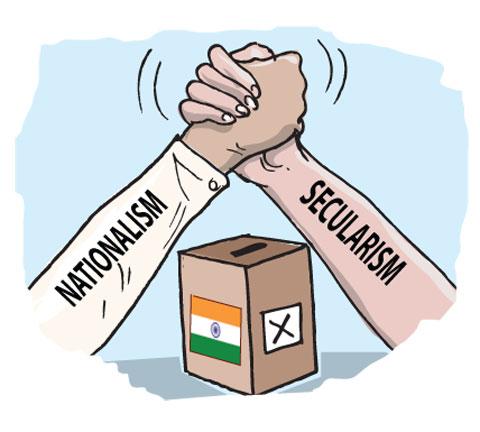Reply To:
Name - Reply Comment
On the 11th of this month, India goes to the polls. The poll will be spread over a period starting 11 April to 22 May. Premier Modi is using an US-styled presidential election campaign, which  he hopes will bring him an election victory. The election is being portrayed by Modi and his party -the BJP- to be all about him (Modi) and his strong leadership qualities.
he hopes will bring him an election victory. The election is being portrayed by Modi and his party -the BJP- to be all about him (Modi) and his strong leadership qualities.
During the 2014 election campaign, Modi used the same tactics to good effect and won a landslide majority.
However, this time around the same tactics may not pay off. In 2014 Modi was in the Opposition.
This time around he is the sitting Prime Minister of the country where a majority of its citizens, especially in the rural areas are involved in farming, and the farming industry is facing a financial crisis.
Premier Modi back in 2014 campaigned on a slogan ‘Good days are coming...’, however a Government survey obtained by India’s Business Standard newspaper reveals that Mr Modi’s regime has presided over India’s worst unemployment rate in 45 years and that up to 6.1% Indians are unable to find work at all.
Worse in a country where roughly a third of the country’s unemployed are highly educated, the majority of them are unable to find suitable employment.
Sandeep Kumar Badal, The Guardian reports graduated with Master’s Degrees in Hindi and English in 2011, he has spent eight years since then picking up casual work as a tutor at an academic coaching centre in a small city in north India’s Haryana State. This year he was one of two million people who applied for a few thousand low-level ‘Peon’ jobs in the State administration!
He has started working at a State college, where he files documents, fetches tea and takes orders from senior staff. “There are lecturers at the college with fewer qualifications than me,” he said...
Earlier, Modi’s sudden demonetisation of the country’s two most valuable banknotes led to months of cash shortages from which the construction and farming industries are thought to be still recovering.
With a long list of unfulfilled promises and unrequited expectations of his voter base, Premier Modi’s electoral chances at the 11 April hustings are not as rosy as his chances were in the 2014 General Elections.
The Premier’s principal adversary - the Congress Party led by Rahul Gandhi has yet to declare its Prime Ministerial candidate. The Congress has recently seen a surge in its popularity and has ousted the BJP in three State elections in December.
Gandhi has been striking a number of electoral alliances, while at the same time the BJP has seen a number of its allies move away from the party.
But the terrorist attack at Pathankot by a young Kashmiri belonging to the Pakistan-based terrorist group JeM is diverting attention away from the governing party’s failure to keep election promises.
The announcement of air-strikes against Pakistan has seen the BJP portraying India as being safe and secure under Modi’s leadership.
But the terrorist attack is also polarizing differences between India’s Hindu majority and its Islamic minority. A large number of Kashmiris living in different parts of India came under attack from goon squads backed by sections of the ruling party in the aftermath of the Pathankot attack.
The continuing attacks on India’s Muslim minority, instigated by cow vigilantes further aggravate the situation.
If present rulers attempt to use the anti-Muslim rhetoric as a cover for the failure to keep election promises, in the long-term it could lead to a Balkanisation of India.
India’s leaders irrespective of their political affiliations need to rein in these divisive forces and ensure the country remains secular where all its citizens feel they are equal. India’s leaders need to ensure that Secularism is not limited to a mere word in the Indian Constitution.